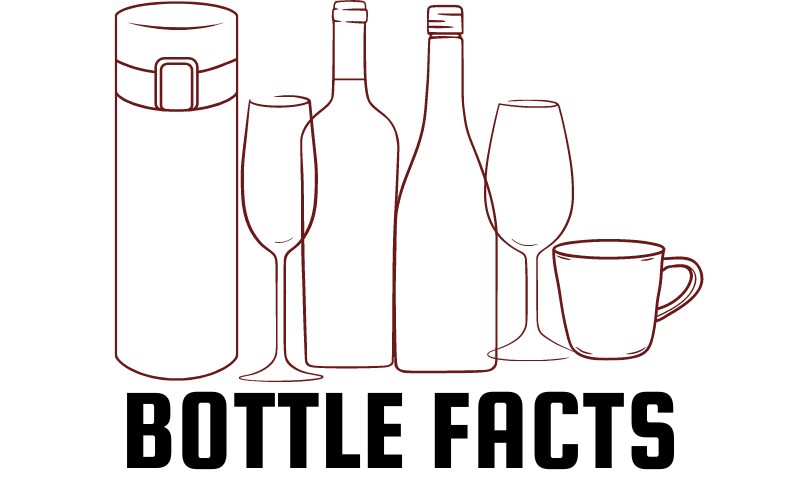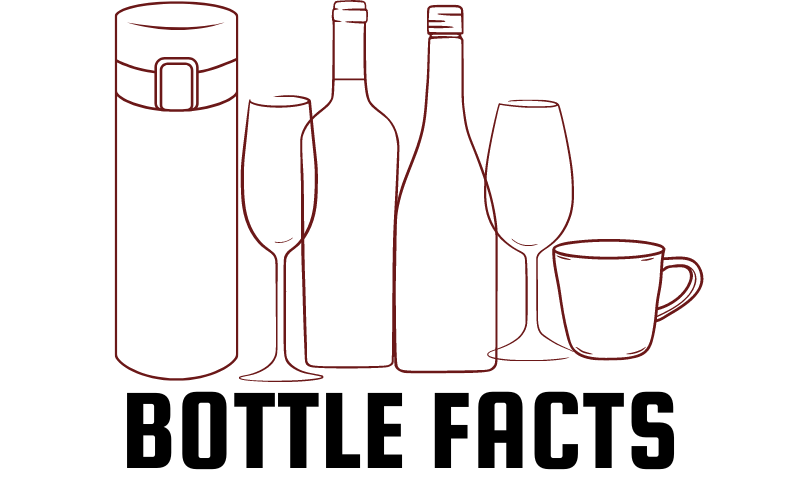When it comes to feeding our babies, there are two main options: bottle feeding and breastfeeding. Each method has its pros and cons, and it’s important to consider them before making a decision. Did you know that bottle feeding provides convenience and flexibility for busy parents? With bottle feeding, anyone can take care of the baby, allowing for more freedom and shared responsibilities.
On the other hand, breastfeeding has been practiced for centuries and is considered the most natural way to nourish a baby. It provides essential nutrients and antibodies that promote a strong immune system. Research shows that breastfed babies are less likely to develop allergies, respiratory infections, and digestive problems. It’s a beautiful bonding experience between a mother and her baby, creating a deep connection that goes beyond nourishment.
Breastfeeding vs. Bottle Feeding: Which is Best for Your Baby?
As a parent, one of the first and most important decisions you’ll make for your baby is whether to breastfeed or bottle feed. Both methods have their pros and cons, and it’s essential to consider your own lifestyle, comfort, and the needs of your baby when making this choice. In this article, we will explore the benefits and drawbacks of both breastfeeding and bottle feeding to help you make an informed decision.
Breastfeeding: The Natural Choice
Breastfeeding is often considered the gold standard when it comes to infant nutrition. It provides babies with the perfect balance of nutrients, antibodies, and enzymes to support their growth and development. Here are some of the key advantages of breastfeeding:
- Breast milk contains essential antibodies that help protect infants from illnesses and infections.
- Breastfeeding promotes bonding between the mother and baby through skin-to-skin contact and eye contact.
- It enhances the development of the baby’s immune system, reducing the risk of allergies and diseases later in life.
- Breast milk is easily digestible, leading to less constipation and digestive issues.
In addition to benefiting the baby, breastfeeding also has several advantages for the mother:
- It helps the uterus contract and return to its pre-pregnancy size, reducing postpartum bleeding.
- Mothers who breastfeed have a lower risk of developing breast and ovarian cancer.
- It can aid in postpartum weight loss by burning extra calories.
- Breastfeeding is convenient and cost-effective, as there is no need to sterilize bottles or purchase formula.

Challenges of Breastfeeding
While there are many benefits to breastfeeding, it’s important to acknowledge that it can also present challenges for some mothers. Here are a few common hurdles you may encounter:
- Initial discomfort, such as nipple soreness or engorgement, as you and your baby establish a breastfeeding routine.
- Supply issues, such as low milk production or oversupply, which can cause stress and frustration.
- Limited flexibility, as breastfeeding requires you to be available to feed your baby throughout the day and night.
- Difficulty returning to work or leaving your baby with a caregiver, as breastfeeding may not be easily adapted to these situations.
If you decide to breastfeed, it’s crucial to seek support from healthcare professionals, lactation consultants, and support groups to overcome these challenges and ensure a successful breastfeeding journey.
Bottle Feeding: A Convenient Alternative
Bottle feeding, whether with expressed breast milk or formula, offers a viable alternative to breastfeeding. Here are some of the advantages of bottle feeding:
- Bottle feeding allows others to participate in feeding and bonding with the baby, giving the mother more flexibility and support.
- You have more control over the feeding schedule, making it easier to plan outings and return to work.
- It enables you to monitor how much the baby is consuming, making it easier to track their intake and growth.
- Bottle feeding can be less physically demanding and may help prevent breastfeeding-related discomforts, such as sore nipples.
For mothers who are unable to breastfeed or choose not to, bottle feeding can provide a suitable and healthy option for nourishing their baby.

Drawbacks of Bottle Feeding
While bottle feeding has its advantages, there are a few drawbacks to consider:
- Babies who are bottle fed may have a higher risk of developing allergies and respiratory infections compared to breastfed babies.
- Formula-fed infants may experience more gas, constipation, or loose stools compared to breastfed babies.
- Preparing bottles requires time and effort, including sterilizing equipment and ensuring the correct mixing of formula.
- Bottle feeding can be expensive, as formula and feeding supplies need to be purchased regularly.
It’s important to note that while bottle feeding provides a convenient option, it does not offer the same immunity-boosting benefits as breast milk. However, modern infant formulas are designed to mimic the nutritional composition of breast milk as closely as possible.
Making the Decision: What’s Best for You and Your Baby?
When it comes to choosing between breastfeeding and bottle feeding, there is no one-size-fits-all answer. Consider the following factors to help you make the best decision for you and your baby:
- Your lifestyle and daily routine
- Your comfort level with breastfeeding
- Support available from healthcare professionals, family, and friends
- Medical conditions or medications that may affect breastfeeding
- Your baby’s specific needs and any challenges they may face
Remember, there is no right or wrong choice. The most crucial factor is ensuring that your baby receives proper nutrition and care. Ultimately, the decision should be based on what works best for you and your family.
Conclusion
Choosing between breastfeeding and bottle feeding is a personal decision that requires careful consideration. Both methods have their advantages and disadvantages, and what works for one family may not work for another. The key is to weigh the pros and cons, consider your lifestyle and preferences, and seek support from healthcare professionals to ensure that your baby receives the best possible nutrition and care. Remember, there is no right or wrong choice as long as your baby is healthy and thriving.
Comparing Bottle Feeding and Breastfeeding: Pros and Cons
When it comes to feeding your baby, the two main options are bottle feeding and breastfeeding. Each method has its own set of pros and cons, and it’s important to consider them before making a decision.
Bottle feeding offers convenience and flexibility. It allows you to easily track how much your baby is eating, and allows other family members to help with feedings. However, it can be costly, as formula and bottles need to be purchased regularly. There is also a risk of contamination if bottles are not cleaned properly.Breastfeeding, on the other hand, provides numerous benefits for both the baby and the mother. It contains all the necessary nutrients and antibodies to boost the baby’s immune system. It also creates a special bond between mother and baby. However, breastfeeding can be challenging and time-consuming. It may also be difficult for working mothers who need to pump and store breast milk.
Ultimately, the decision between bottle feeding and breastfeeding depends on individual circumstances and preferences. Some mothers may choose to combine both methods, known as mixed feeding, to enjoy the benefits of both. Whatever the choice, it’s important to prioritize the health and well-being of the baby and the mother.

Frequently Asked Questions
Breastfeeding and bottle feeding are two common methods of nourishing a baby. Each has its own set of advantages and disadvantages. In this article, I will answer some frequently asked questions about comparing bottle feeding and breastfeeding, so you can make an informed decision for your baby.
1. What are the pros and cons of breastfeeding?
Breastfeeding offers numerous benefits for both the baby and the mother. Breast milk contains all the necessary nutrients and antibodies to boost the baby’s immune system and protect them from infections. It also promotes bonding between the mother and the baby. On the other hand, breastfeeding can be challenging for some mothers, especially in the beginning. It may require extra effort and time, and it can be physically demanding. It may also limit the mother’s freedom as she needs to be available for feeding sessions.
2. What are the pros and cons of bottle feeding?
Bottle feeding provides convenience and flexibility for mothers. It allows other family members or caregivers to take turns in feeding the baby, giving the mother some time to rest. It also allows for better monitoring of the baby’s intake. However, formula milk lacks the antibodies and natural nutrients found in breast milk. It may also require additional preparation time and can be more expensive in the long run.
3. Can I combine breastfeeding and bottle feeding?
Yes, it is possible to combine breastfeeding and bottle feeding. This method is called mixed feeding. It allows the mother to supplement breastfeeding with formula milk or pumped breast milk. This can be helpful when the mother needs to be away from the baby for longer periods or when the baby is having difficulty latching. However, it can be confusing for the baby and may affect milk supply if not managed properly.
4. How does bottle feeding impact the baby’s digestive system?
Bottle feeding can lead to a higher risk of certain conditions in the baby’s digestive system, such as constipation and gas. Formula milk may be harder for the baby to digest compared to breast milk, which can result in these discomforts. It is important to choose the appropriate formula milk and follow the recommended feeding guidelines to minimize these issues.
5. How does breastfeeding affect the mother’s body?
Breastfeeding has several positive effects on the mother’s body. It helps the uterus contract back to its pre-pregnancy size and reduces the risk of postpartum bleeding. It also aids in weight loss as it burns calories. Additionally, breastfeeding has been linked to a lower risk of certain diseases, such as breast and ovarian cancer. However, some women may experience sore nipples, breast engorgement, or mastitis during the breastfeeding journey.
Ultimately, the decision between breastfeeding and bottle feeding depends on various factors, including personal preference, lifestyle, and medical considerations. It is essential to consult with your healthcare provider and make an informed choice that suits you and your baby’s needs.
In conclusion, both bottle feeding and breastfeeding have their pros and cons. Bottle feeding offers convenience and allows for greater flexibility in feeding schedules. It also allows other family members to participate in feeding the baby. On the other hand, breastfeeding provides numerous health benefits for both the baby and mother, as breast milk is uniquely designed to meet the nutritional needs of infants.
Ultimately, the decision between bottle feeding and breastfeeding is a personal one that should be based on individual circumstances and preferences. Some mothers may choose to exclusively breastfeed, while others may opt for a combination of breast milk and formula feeding. The important thing is to ensure that the baby is well-nourished, loved, and cared for, regardless of the feeding method chosen.


